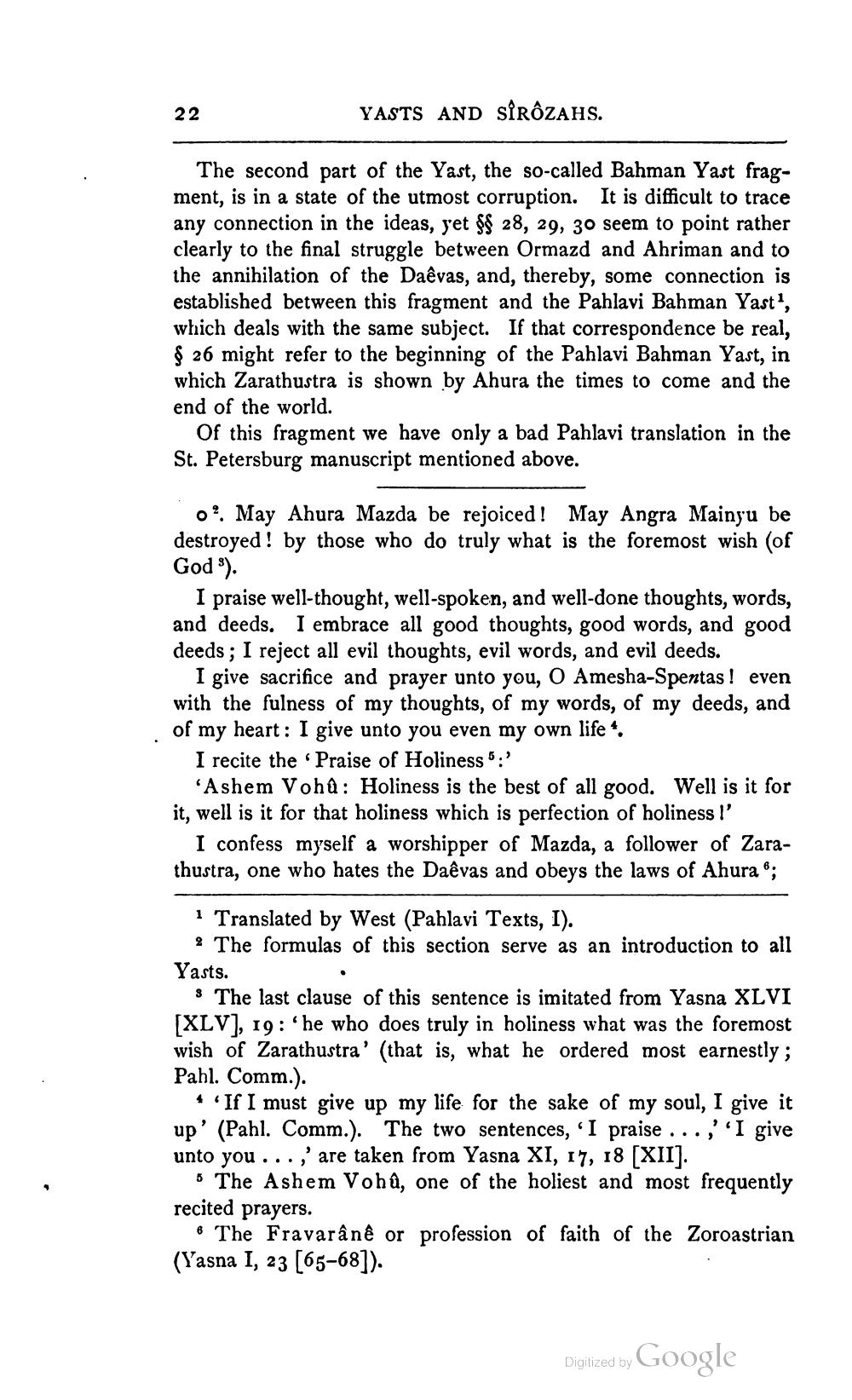________________
YASTS AND SIRÔZAHS.
The second part of the Yast, the so-called Bahman Yast fragment, is in a state of the utmost corruption. It is difficult to trace any connection in the ideas, yet §§ 28, 29, 30 seem to point rather clearly to the final struggle between Ormazd and Ahriman and to the annihilation of the Daêvas, and, thereby, some connection is established between this fragment and the Pahlavi Bahman Yast1, which deals with the same subject. If that correspondence be real, § 26 might refer to the beginning of the Pahlavi Bahman Yast, in which Zarathustra is shown by Ahura the times to come and the end of the world.
22
Of this fragment we have only a bad Pahlavi translation in the St. Petersburg manuscript mentioned above.
o. May Ahura Mazda be rejoiced! May Angra Mainyu be destroyed! by those who do truly what is the foremost wish (of God 3).
I praise well-thought, well-spoken, and well-done thoughts, words, and deeds. I embrace all good thoughts, good words, and good deeds; I reject all evil thoughts, evil words, and evil deeds.
I give sacrifice and prayer unto you, O Amesha-Spentas! even with the fulness of my thoughts, of my words, of my deeds, and of my heart: I give unto you even my own life *.
I recite the Praise of Holiness":"
'Ashem Vohu: Holiness is the best of all good. Well is it for it, well is it for that holiness which is perfection of holiness !'
I confess myself a worshipper of Mazda, a follower of Zarathustra, one who hates the Daêvas and obeys the laws of Ahura R;
1 Translated by West (Pahlavi Texts, I).
2 The formulas of this section serve as an introduction to all Yasts.
3 The last clause of this sentence is imitated from Yasna XLVI [XLV], 19: 'he who does truly in holiness what was the foremost wish of Zarathustra' (that is, what he ordered most earnestly; Pahl. Comm.).
* If I must give up my life for the sake of my soul, I give it up' (Pahl. Comm.). The two sentences, 'I praise...,' 'I give unto you...,' are taken from Yasna XI, 17, 18 [XII].
5 The Ashem Vohû, one of the holiest and most frequently recited prayers.
•
The Fravarânê or profession of faith of the Zoroastrian (Yasna I, 23 [65-68]).
Digitized by
Google




